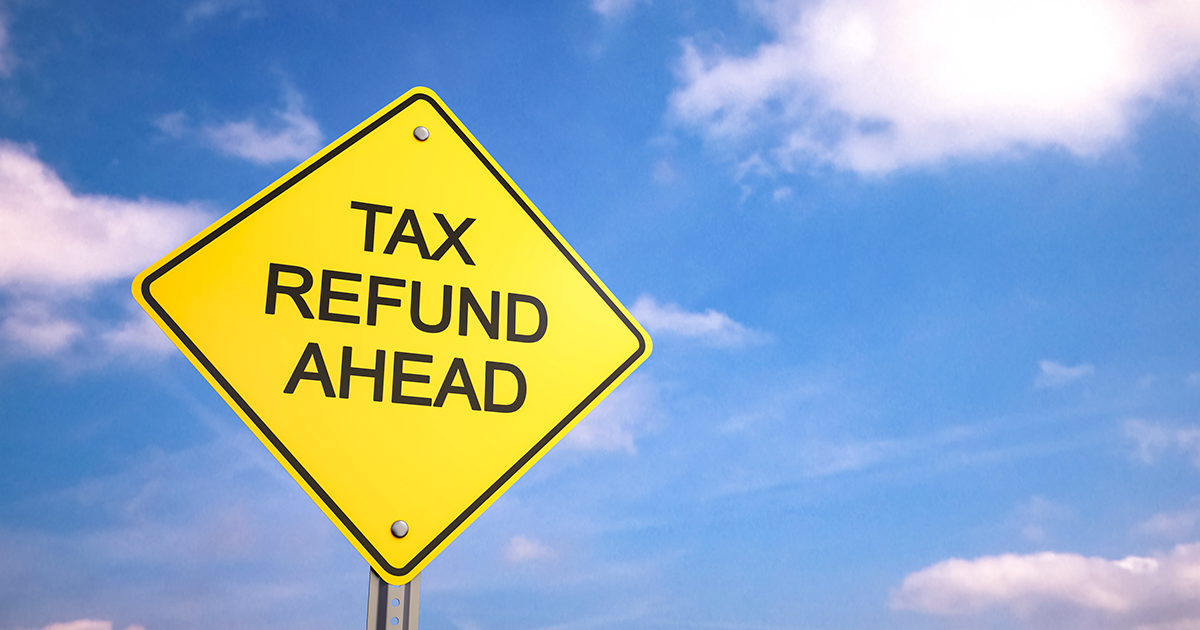
Best Uses for Your Tax Return
In 2021, the average tax return was $2,863, and if you’re one of the 62% of Americans expecting a tax refund, it may represent the single largest cash infusion you receive.1,2 And if you’re like me, your mind immediately wonders how to spend it. It’s certainly an important decision, and not one to take lightly. Instead of squandering it on a shiny new car or fancy TV, financial experts have a few distinct suggestions to best enhance your financial health. If you’re unsure on what to do with your tax refund, I have compiled the best ideas for how to put your tax return to best use.
Pay down debt
Taking the number one spot on this list is probably no surprise: paying down on debts. While not as sexy as a new set of golf clubs, it is the undisputed champion of fiscal responsibility. Paying down on debt, like a credit card, improves any financial situation. The benefits are manifold; you aren’t paying as much in interest, saving you money in the long term. You also improve your financial responsibility in the eyes of lenders, while bringing you one step closer to financial freedom.
In fact, financial freedom might be one of the most overlooked aspects of mental health. A recent study found that those who struggle to pay off their debts and loans are more than twice as likely to experience a host of mental health problems, including severe anxiety and depression.3 Paying down debt is imperative not only for your financial health, but is paramount to your mental well-being.
Stash your wealth like a dragon hoarding its gold
A recent tax returns survey found that more than 50% of Americans who expect a refund this year plan to save it. Saving your tax return for unexpected expenses is a wise choice, if for no other reason than the peace of mind that accompanies it. If you can, try to set it and forget it, even if it’s a small amount. Research suggests that individuals who struggle to recover from a financial shock have less savings to help protect against a future emergency.4 Thus, to protect yourself from a financial spiral, it’s crucial to have that extra financial padding. Simply put, hope for the best but prepare for the worst, and then some.
Invest in your assets
If you’ve paid down your debt and stashed away a considerable amount for an emergency fund, consider home renovations or essential car repairs. By improving the resale value of your physical assets, you increase your potential returns when you choose to sell them. Indeed, there is strong belief that investing in assets presents more of a return than stocks and bonds, and acts as a hedge against economic uncertainty.5 In this way, you set yourself up to build your wealth regardless of the economy. Maybe now’s the time to investigate that strange noise your car makes in the rain, or repaint your home with a couple trusty coats of midnight blue.
Level-up in life
If the situation is right for you, perhaps dedicate some of those tax return funds to something you’ve been putting off to improve your overall well-being. You could use your tax return to level-up in life; by taking online courses to enhance your skills, joining a gym, or even enrolling in a nutrition program, you improve your most valuable asset: yourself. Or, maybe you’re overdue for a day at the spa. In any case, take the best course of action for yourself based on your circumstances, but don’t overdo it. Your tax return money shouldn’t be used flippantly, but to improve your situation in life.
Start saving for retirement
If you’ve got all the above boxes checked, then you should be in a great position to start preparing for retirement. Begin budgeting based on your desired retirement age, and consider putting your funds into an IRA or similar retirement account. As a good rule of thumb, you should continue adding to your account until your savings are 25 times larger than the amount you anticipate withdrawing each year.6 One of the benefits of investing your funds into an IRA is that it’s very hard to get funds out once they’re in your account- unless you accept an early withdrawal penalty.
Set yourself up to succeed
Ultimately, your tax refund money is a tool that can help set yourself up for lasting financial success. Assess your situation and decide if you should spread the funds over a couple of the categories I’ve mentioned, or if you’d be better off applying those funds to one method that best improves your financial well-being. Try removing yourself from the equation, viewing your situation as an unbiased, third-party might, and go from there. Your long-term financial status will only be as good as the decisions you make, and it starts here.
Sources:
- Staff. (2021, May 7). Filing Season Statistics for Week Ending May 7, 2021. Retrieved from: https://www.irs.gov/newsroom/filing-season-statistics-for-week-ending-may-7-2021
- Staff. (2021). Tax Returns: Consumer plans for 2021. Retrieved from: https://nrf.com/topics/holiday-and-seasonal-trends/tax-returns
- Gathergood, John. (2012, January 12). Debt and Depression: Causal Links and Social Norm Effects. Retrieved from: https://onlinelibrary.wiley.com/doi/abs/10.1111/j.1468-0297.2012.02519.x
- Staff. (2022). An essential guide to building an emergency fund. Retrieved from: https://www.consumerfinance.gov/start-small-save-up/start-saving/an-essential-guide-to-building-an-emergency-fund/
- Staff. (2020, December 27). Why should you invest in tangible assets? Retrieved from: https://www.investopedia.com/ask/answers/041615/why-should-you-invest-tangible-assets.asp
- Willens, Jessica. (2021, November 15). How To Invest for Retirement at Every Age. Retrieved from: https://realwealth.com/learn/how-to-invest-for-retirement/


